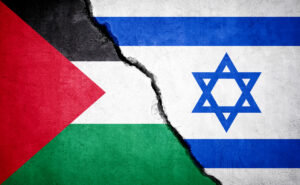Why and how to ‘hotwash’ after a crisis
It’s an emergency response concept you can apply to your crisis comms.

In the world of emergency preparedness, a hotwash is a term assigned to the after-action debrief in emergencies like natural disasters. The term originated in the military, where soldiers used extremely hot water to remove residue and debris from their weapons after firing.
Everyone involved in a crisis response should be part of the hotwash exercise. It’s the opportunity to understand where things went right, where things went wrong, and what related improvements might be made to the crisis response program.
In a crisis, most people just want to resume their normal lives. They naturally are grateful that it is over. However, that is one step short of a full end to management of a crisis. It is essential to bring your crisis team back together and to go through a hotwash exercise. The learning that you get and the perspectives of different team members are critical to decision making going forward.
A hotwash is not just for operations and logistics teams — crisis communicators similarly should make a strong investment of time reviewing how the crisis response played out. Here are a few questions that should be asked during any crisis communications hotwash:
- How prepared were you overall? Many crises are anticipated — and in some cases, smart communicators have prepared template language for the crisis. Thinking about the resources that were available, and what was missing, can improve future actions in crisis.
- How did your spokespeople do? In a crisis, confident, credible voices are essential to building trust and reassuring critical audiences. Subject-matter experts and leaders should be trained to be effective in delivering key messages in a crisis.
- Were the right people at the table? A crisis requires a team of informed, relevant members to share reports and answer questions. Gaps on the crisis management team can create gaps in response.
- Were we successful in reaching critical audiences? Great crisis response language is irrelevant if stakeholders don’t receive it. Understanding who needs to be engaged or informed and maintaining open, appropriate lines of communication matters. As a reminder, in a crisis, it’s easy to focus on external groups — don’t forget employees and other internal audiences. They can be ambassadors and offer valuable insights on workplace and community perceptions.
- Did the response prevent the crisis from escalating and minimize its reputational impact? While harder to measure, this is an important discussion to have in a hotwash. A good crisis response can reduce the likelihood of the crisis evolving and growing, and the right communications can mitigate against a loss of trust and confidence.
- If media or social media were a factor in the crisis, how did it go? Managing news media and social media chatter can be challenging in a crisis. Making sure a team is well prepared to navigate the public face of the crisis is deeply important. Know who is responsible for triaging media inquiries and who is monitoring social platforms and have them regularly report to the crisis management team.
- How did operations and communications collaborate? In a crisis, many different departments and functions have responsibilities. The operational response needs to inform the communications response — and vice versa. Decisions are being made quickly, and these conversations can decrease the likelihood of mistakes.
And the over-arching questions that should always be asked in a hotwash is: What didn’t go well and what could be done differently next time? Illuminating the strengths and weaknesses of the response creates the go-forward path and identifies lessons learned.
Hinda Mitchell is president of Inspire PR Group.







This exceptionally good wisdom may do even more for your client and your career if you alert management to watch out for this common crisis aftershock: A political leader calls for a “protective law” that would reduce the peril of the crisis happening again (a law that could increase the difficulty of your client getting fair earnings).
The politician’s staffers, seeing how much media coverage the crisis got,
thinks “how can we get in more on this media coverage?”
The cry for “protective” legislation is taken up by people who may do better if your client does worse.
One of your top management people, thinking the trouble is over, answers media queries by saying there’s “no need” for the proposed regulation. This leads to the other side being asked by journalists if there IS a need which could focus public attention on how your client MAY harm the public.
Fortunately, you may importantly protect your client and advance your own career by doing public and internal communication on (a) what management is already doing to prevent recurrence of the problem, and (b) how management’s protective action is in three ways better than “extremist proposals” that would hurt the public.
This benefits the public and your client by reducing the peril of extremist proposals being adopted, also benefits your client by winning goodwill for its protective actions, and may benefit your career by showing management how your look-ahead PR wisdom is protective.
This read on hotwashing is really nice to see. The aftermath of a crisis is incredibly important and organizing these questions to guide the organization after the fact is very helpful, especially for people ready to break into the career (like myself). Will definitely be keeping these questions front of mind throughout my career in PR.